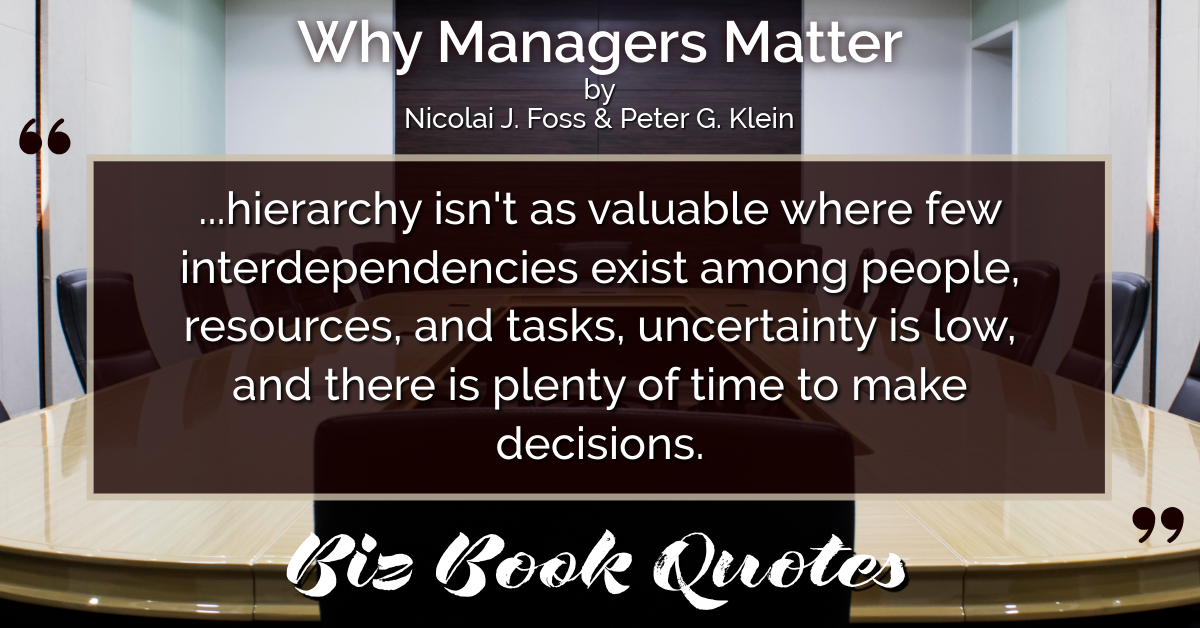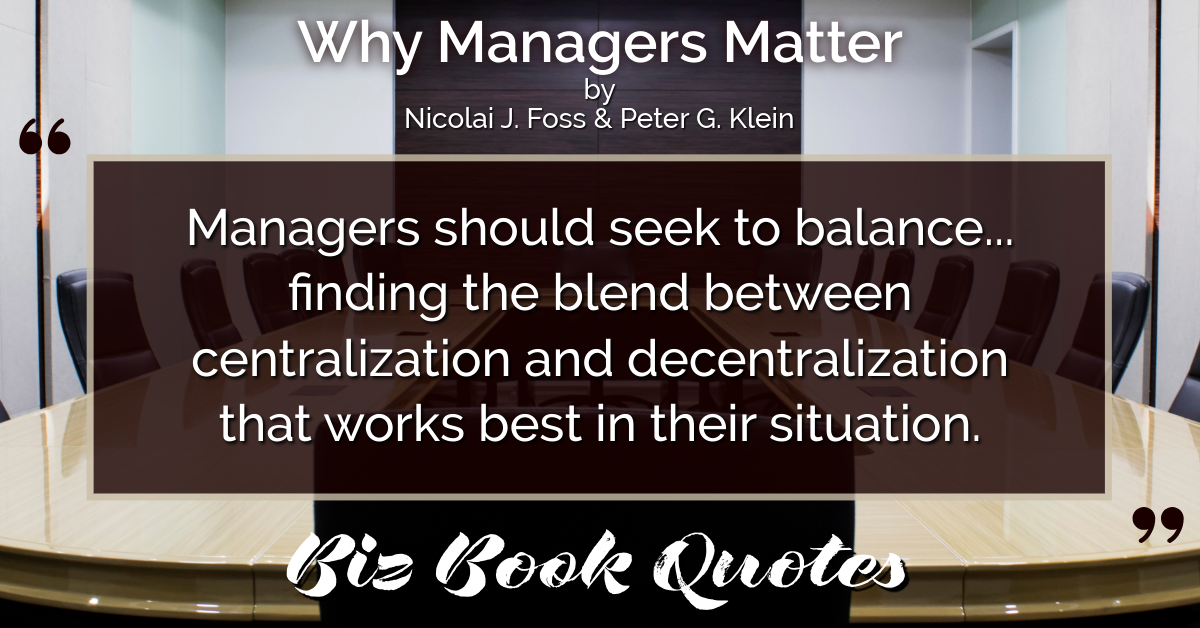|

|
Why Managers Matter:
Modules are smaller pieces of a larger system that can be combined in different ways.
|
167 |
|

|
Why Managers Matter:
Modularity drives down costs, allows for flexibility, and encourages innovation by making it easier to combine components, services, and ideas.
|
168 |
|

|
Why Managers Matter:
…hierarchy isn’t as valuable where few interdependencies exist among people, resources, and tasks, uncertainty is low, and there is plenty of time to make decisions.
|
170 |
|

|
Why Managers Matter:
A key function of hierarchy is having procedures that describe how interdependencies are to be handled.
|
177 |
|

|
Why Managers Matter:
Like everything else associated with doing business, a company’s structure needs to change with the times as well as in response to unanticipated shocks.
|
179 |
|

|
Why Managers Matter:
…[hierarchy] has always been present, in one form or another, for as long as there have been humans.
|
185 |
|

|
Why Managers Matter:
Evolutionary anthropology provides evidence that hierarchy is highly useful and has basic survival value.
|
189 |
|

|
Why Managers Matter:
…the evidence from so-called primitive cultures seems to point to consent as an important basis of de facto leadership.
|
189 |
|

|
Why Managers Matter:
The idea that hierarchy requires top-down, authoritative decision-making by a single boss is largely a fiction.
|
195 |
|

|
Why Managers Matter:
Managers should seek to balance… finding the blend between centralization and decentralization that works best in their situation.
|
197 |











